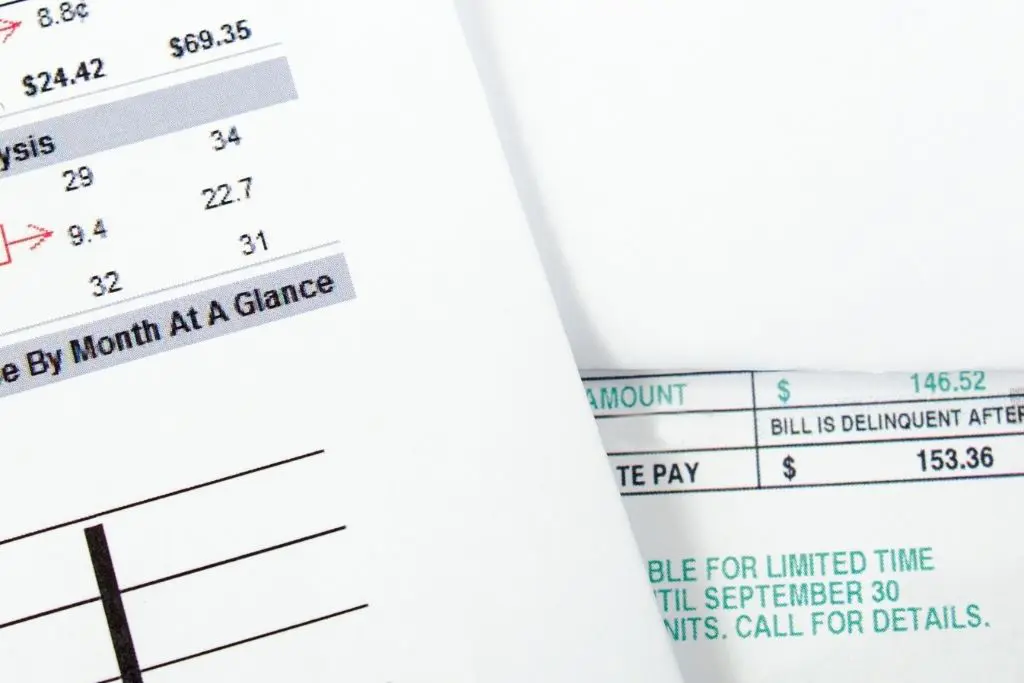Selling your home fast is exciting, but the utility bills don’t vanish the minute you hand over the keys. Utility accounts usually stay in the seller’s name until the official closing date, and mishandling them can lead to extra charges, unpaid utility bills, or even delays in the closing process. The seller is responsible for utility payments up to the closing date, and after that, the new owner or buyer takes over.

Keeping working utilities active isn’t just courteous; it’s necessary. A house without power, water, or gas can’t be inspected or properly maintained. Turning things off too early can cause major headaches for potential buyers. Real estate agents and utility companies alike recommend leaving utilities on until closing to protect everyone and help the home sale go smoothly.
Knowing when and how to cancel or transfer services prevents hidden fees or billing surprises. By coordinating with utility providers and double-checking transfer dates, you avoid paying for services you’re no longer using and reduce costs during the final stages of selling a house.
Defining Responsibility: When Does the Seller’s Utility Obligation End?
Responsibility depends on your contract, when the property officially changes hands, and sometimes local regulations. Sellers should work with utility companies and the buyer’s real estate agent to ensure service doesn’t get cut off or disputed at the wrong time.
Closing Date vs. Possession Date
The closing date is when the property legally transfers ownership, while the possession date is when the buyer actually moves in. If the seller stays after closing, they’re still responsible for utilities. If the buyer moves in right away, they take over immediately. Get both dates in writing to avoid confusion, especially for billing and final payments.
The “Next Business Day” Rule
Many sellers keep utilities on until the day after closing, known as the “next business day” rule. This ensures inspections and walkthroughs aren’t disrupted by shutoffs and protects systems like sump pumps or HVAC. Always get a final meter reading and proof that your account is closed to prevent any unpaid bills or late fees.
State Regulations and Contracts
Utility rules vary by state, and real estate contracts may outline specific obligations. Some states require sellers to keep utilities on through closing for inspections. For instance, NC REALTORS® states sellers must cover utility costs until the deal is done. Inherited property sales or cash home buyer transactions follow the same rules unless otherwise stated.
| Stage of Sale | Responsible Party | Notes |
|---|---|---|
| Before Closing | Seller | Keep utilities on for inspections |
| Closing Day | Seller or Buyer | Depends on possession details |
| After Possession Transfer | Buyer | Opens new accounts |
Why Maintaining Utilities Is Essential
Keeping utilities on during and right after a sale prevents property damage, satisfies contract terms, and ensures a smooth transition for cash buyers or traditional ones alike.
Protecting a Vacant Property
An unheated or unpowered house can suffer burst pipes, mold, or system damage. Maintaining working utilities helps prevent costly repairs and allows remote monitoring through smart devices. Even in inherited homes, this step protects your investment while the sale proceeds finalize.
Handling Unexpected Closing Delays
Closings sometimes get delayed due to paperwork or financing. If utilities are off, inspections or move-ins may be held up. Keeping them on until the sale is recorded avoids reconnection fees and downtime with the water company, electric provider, or gas service.
Avoiding Utility Liens
Unpaid utility bills can turn into a legal claim or utility lien against the property. Make sure all accounts are paid through the transfer date and keep documentation for your records. In some areas, unpaid water or sewer bills automatically become liens that must be settled before closing costs are finalized.
Fostering a Smooth Transition
Leaving utilities on until the buyer switches them over ensures a seamless handoff. A brief overlap of one or two days avoids confusion and shows goodwill to potential buyers. It also helps prevent disputes over past due bills or meter readings.
The Utility Transfer Process: A Step-by-Step Guide for Sellers
This step-by-step guide helps sellers handle utility transfer efficiently and avoid unnecessary payments.
1. Identify All Utilities
List every utility tied to the property: electricity, water, gas, sewer, trash, internet, and extras like solar or security systems. Check if your HOA covers any utilities or property taxes within monthly dues.
2. Notify Utility Companies
Once you know the closing date, contact each provider since most need 5–10 business days’ notice. Provide the final service date and, if applicable, the buyer’s name. Always ask for written confirmation. This keeps your final bill accurate and prevents misunderstandings.
3. Schedule Stop Service or Transfer
Set your stop service date for the day after closing to be safe. Some utility companies allow direct transfers if both parties agree. Check their policy before finalizing.
4. Get Final Meter Readings
Request a documented meter reading at closing. Prorated charges for partial billing periods should appear on your final bill or settlement sheet. This ensures fair payment and helps you avoid any hidden fees.
5. Confirm the Buyer’s Setup
Make sure the buyer has arranged new accounts before closing. If the buyer delays, utilities could be shut off, which risks property damage and extra costs.
6. Understand Reconnection Fees
If utilities are disconnected too early, buyers may face reconnection fees or delays. Align your stop dates carefully to avoid frustration or extra service charges.
| Utility | Reconnection Time | Common Fee |
|---|---|---|
| Electricity | 1–2 business days | $25–$75 |
| Water/Sewer | 2–3 business days | $20–$50 |
| Gas | 2–5 business days | $30–$100 |
What If the Buyer Doesn’t Switch Utilities Promptly?
If utilities remain in your name after closing, contact utility providers to set a final billing date. Keep written proof of all communication. If necessary, you may request stop service, but only after confirming the sale is fully closed and the property legally belongs to the new owner.
Clarify in your real estate contract exactly when utility responsibility transfers. Ask for proof that accounts have been switched to avoid being charged for another person’s usage. This is especially important for cash buyers or inherited property sales, where timelines can move quickly.
| Utility | Seller Account Closed | Buyer Account Confirmed |
|---|---|---|
| Electricity | ✅ | ✅ |
| Water | ✅ | ✅ |
| Gas | ✅ | ✅ |
Beyond Standard Utilities: Other Services to Address
Internet, Cable, and Phone
Cancel or transfer these accounts at least two weeks before moving. Return any rented equipment to avoid late fees or hidden charges. If the buyer wants to keep the same provider, coordinate with them to ensure uninterrupted service.
Home Security Systems
Security contracts often auto-renew, so notify providers 30–60 days before moving. If the buyer wants to keep the system, transfer the account rather than canceling. This reduces costs and maintains property safety during the transition.
| Task | Action | Timing |
|---|---|---|
| Review contract | Confirm renewal or cancellation terms | 30–60 days before move |
| Notify provider | Give written notice | Before closing |
| Transfer/remove equipment | Follow provider instructions | At move-out |
Lawn Care, Pest Control, and HVAC Plans
Cancel recurring maintenance contracts before closing to avoid additional charges. Transfer any warranties or prepaid service plans to the buyer when possible to add value and goodwill.
Mail Forwarding
Set up USPS mail forwarding online about a week before moving. Update your new address with banks, insurance providers, and utility companies to ensure you receive your final bill and avoid missed payments.
Pro Tips for a Seamless Utility Transition
Communicate with Your Real Estate Agent and Buyer
Your real estate agent plays a key role in coordinating communication between you, the buyer, and the utility companies. Provide a list of all active utilities to avoid confusion and delays in the closing process.
Document Everything
Keep detailed records of all calls, emails, and confirmations. This documentation helps protect you from potential disputes over unpaid bills or final service dates.
| Utility | Contact Date | Confirmation # | End Date |
|---|---|---|---|
| Electricity | Sept 30 | #84729 | Oct 25 |
| Water | Oct 1 | #93214 | Oct 26 |
Account for Municipal Lead Times
City utility providers often need more notice than private ones. Start the process 3–4 weeks before closing to give yourself time to address any past due bills or required inspections.
Fast Home Sale Utility Checklist
Before Closing:
- Contact each provider at least three weeks in advance.
- Clear unpaid utility bills and any property taxes.
- Take meter readings to confirm accuracy.
After Closing:
- Confirm final readings and stop service.
- Verify buyer’s accounts are active.
- Keep confirmation receipts in case of future questions.
| Utility | Action | Timing |
|---|---|---|
| Electricity | Final reading | 1–2 days after closing |
| Water | Notify provider | Before closing |
| Gas | Transfer/cancel | At closing |
| Internet/Cable | Cancel/transfer | After move-out |
Frequently Asked Questions
How does a rapid home sale impact utility bills?
A fast home sale can compress the billing window. Sellers should contact each utility company early to ensure accurate final billing through the handover date and avoid late fees.
What should sellers do to settle accounts?
Notify providers, request final readings, and clear any unpaid bills immediately after closing to reduce costs and protect sale proceeds.
Are there special considerations for fast closings?
Yes. Keep utilities active until the buyer takes over to prevent inspection or walkthrough issues and ensure the utility transfer process runs smoothly.
Who pays after the sale?
The new owner is responsible from the closing date onward unless otherwise specified in the contract.
What’s the process for transferring utilities?
Notify providers, confirm stop service dates, and keep documentation of all transactions. This helps avoid billing disputes and ensures a clean handoff.
Can selling a house quickly affect billing cycles?
Yes. Fast closings can cause partial or overlapping billing periods. Always check your final bill and account for closing costs or service prorations.
